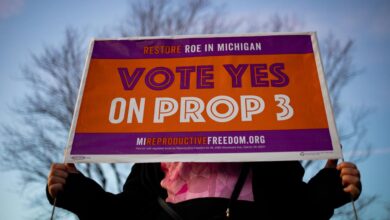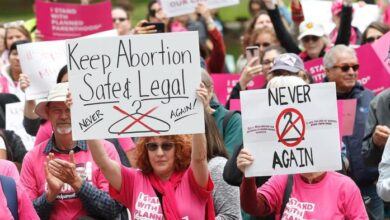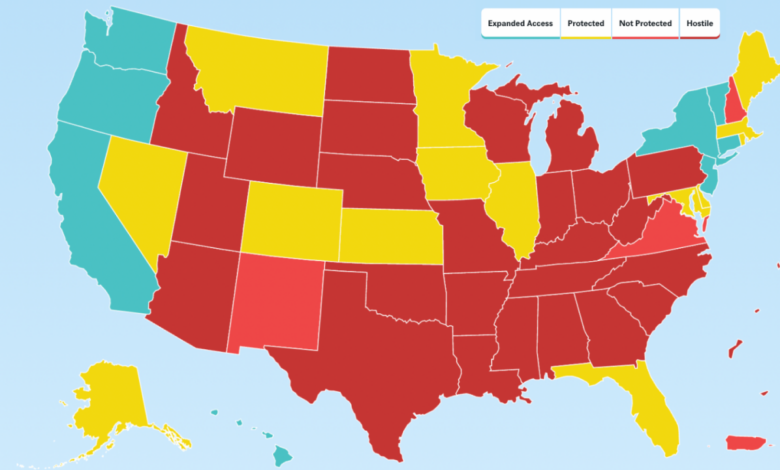
Blue States: Preparing for Abortion Safe Havens
Blue states are preparing to become abortion safe havens, a direct response to the overturning of Roe v. Wade and the subsequent wave of abortion restrictions sweeping across the nation. This shift in the legal landscape has triggered a complex and emotional debate, with states taking opposing stances on the issue of abortion access.
The decision to overturn Roe v. Wade has sparked a fierce battleground over reproductive rights, with some states seeking to severely restrict or even ban abortion altogether. In response, a growing number of states, primarily those with Democratic-controlled legislatures, are actively working to protect and expand abortion access, positioning themselves as safe havens for those seeking reproductive healthcare.
Healthcare Access and Equity
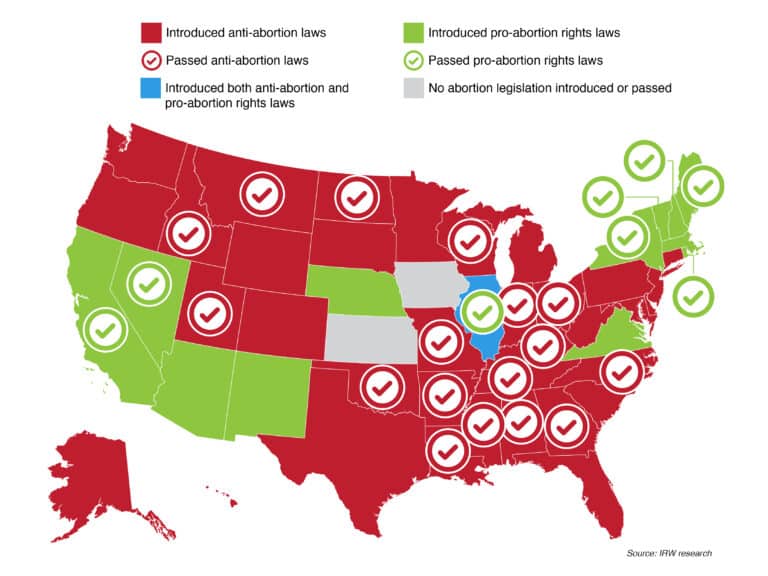
The impact of abortion restrictions on access to healthcare services for women and individuals seeking abortion care is a complex issue with far-reaching consequences. These restrictions can create barriers to accessing essential healthcare services, potentially leading to increased health disparities and inequities in access to reproductive healthcare.
It’s a scary time for reproductive rights, with blue states scrambling to become abortion safe havens. Meanwhile, the Supreme Court is about to rule on another scary voting rights case, which could further restrict access to the ballot box.
This is a crucial moment for our democracy, and it’s clear that the fight for reproductive rights and voting rights are intertwined.
The Impact of Abortion Restrictions on Healthcare Access
The limitations imposed by abortion restrictions can significantly impact the ability of individuals to access comprehensive healthcare services. When abortion is restricted or outlawed, individuals seeking these services may face numerous challenges, including:
- Increased travel distances:Individuals may need to travel long distances to access abortion services in states where it is legal, creating a significant financial burden and logistical challenges, particularly for those with limited resources.
- Limited provider availability:In states with restrictive abortion laws, fewer healthcare providers are willing to offer abortion services due to legal and ethical concerns, resulting in long wait times and limited access to care.
- Financial barriers:The cost of abortion services, including travel expenses, can be prohibitive for many individuals, particularly those with low incomes.
- Increased risk of complications:When individuals are unable to access safe and legal abortion services, they may resort to unsafe methods, putting their health at risk.
Health Disparities and Inequities in Access to Reproductive Healthcare
Abortion restrictions disproportionately impact marginalized communities, exacerbating existing health disparities. For example:
- Low-income individuals:Individuals with limited financial resources face greater challenges accessing abortion services due to the cost of travel, procedures, and other associated expenses.
- People of color:Racial and ethnic minorities are more likely to experience barriers to accessing reproductive healthcare, including abortion services, due to systemic inequities in healthcare access and provider bias.
- Rural communities:Individuals living in rural areas may have limited access to healthcare providers who offer abortion services, making it difficult to obtain timely and safe care.
The Role of Healthcare Providers, Organizations, and Advocacy Groups
Healthcare providers, organizations, and advocacy groups play a critical role in supporting abortion access in states with restrictive laws. These entities can:
- Provide essential healthcare services:Healthcare providers who offer abortion services are essential for ensuring access to safe and legal care.
- Offer legal and logistical support:Organizations and advocacy groups can provide legal assistance, financial support, and logistical support to individuals seeking abortion care.
- Advocate for policy changes:Advocacy groups work to challenge restrictive abortion laws and promote policies that ensure access to reproductive healthcare.
- Educate the public:Organizations and advocacy groups can educate the public about abortion rights, dispel myths and misconceptions, and promote understanding and compassion.
Economic and Social Impacts
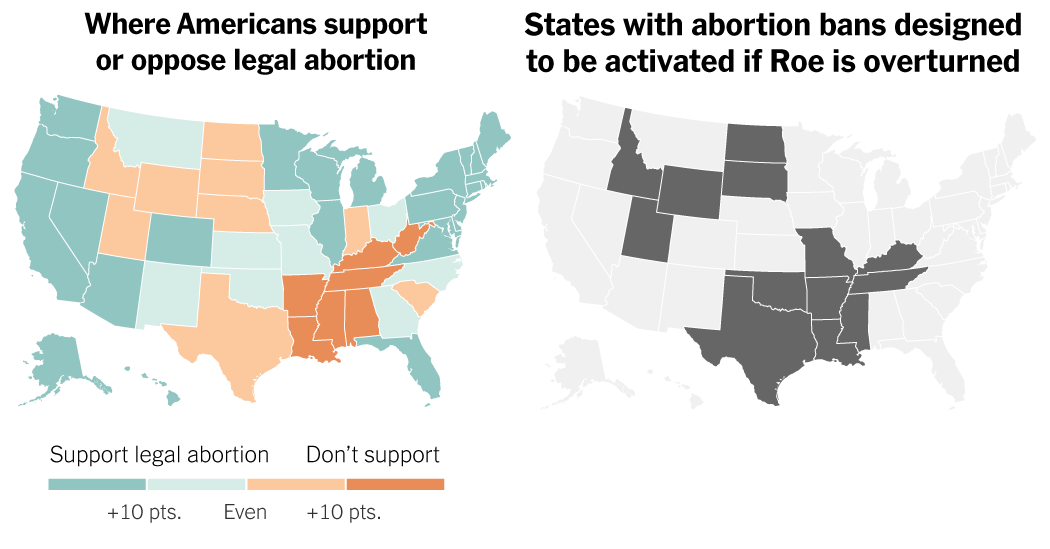
The restrictions on abortion access are not just a matter of healthcare; they have far-reaching economic and social consequences that ripple through communities and impact individuals’ lives. These restrictions can lead to financial hardship, limit economic opportunities, and exacerbate existing social inequalities.
Economic Impact on States and Communities
The economic impact of abortion restrictions is multifaceted and can be significant. One of the most immediate effects is the loss of jobs and economic activity. The healthcare industry, particularly in states with restrictive abortion laws, faces a decline in revenue and employment as patients seek care elsewhere.
This can lead to job losses for doctors, nurses, and other healthcare professionals, impacting local economies.
- For example, a study by the Institute for Women’s Policy Research found that a complete ban on abortion in Texas would result in a loss of over 13,000 jobs and $1.3 billion in economic activity annually.
Furthermore, the cost of travel and lodging for individuals seeking abortion care in states with more lenient laws adds a financial burden on families, further impacting their economic stability. This cost can be particularly challenging for low-income individuals and families who may already be struggling financially.
“The cost of travel and lodging can be a significant barrier to accessing abortion care, especially for low-income individuals and families. This financial burden can further exacerbate existing inequalities and limit access to healthcare.”
Social and Cultural Implications, Blue states are preparing to become abortion safe havens
The social and cultural implications of abortion restrictions are profound and can contribute to a culture of stigma and discrimination against women and individuals seeking abortion care. These restrictions can lead to an increase in unsafe abortions, which can have serious health consequences for individuals and place a strain on healthcare systems.
- In countries with restrictive abortion laws, unsafe abortions are a leading cause of maternal mortality and morbidity.
Moreover, the criminalization of abortion can create a climate of fear and silence, making it difficult for individuals to access information and support related to reproductive health. This can lead to social isolation and a sense of shame for those seeking abortion care.
“The criminalization of abortion can create a climate of fear and silence, making it difficult for individuals to access information and support related to reproductive health.”
With the recent Supreme Court ruling, blue states are stepping up to become abortion safe havens, offering protection and resources to those seeking reproductive healthcare. This means navigating a complex landscape of healthcare access, which can be made easier with the right technology.
It’s interesting to note that the use of edtech in schools is also undergoing a transformation, as seen in 7 facts about the state of edtech in schools. As these blue states become havens for reproductive healthcare, the need for accessible and secure online platforms to manage appointments, information, and resources will be crucial.
Impact on Families, Relationships, and Communities
The impact of abortion restrictions extends beyond individuals and can have profound effects on families, relationships, and communities. When individuals are denied access to safe and legal abortion care, they may face unwanted pregnancies and feel forced to make difficult choices that can strain their relationships and impact their families’ well-being.
- For example, a woman who is denied an abortion may feel pressured to carry an unwanted pregnancy to term, which can lead to financial hardship, social isolation, and emotional distress.
The consequences of these decisions can have a ripple effect on families and communities, leading to increased poverty, family instability, and social unrest.
“The impact of abortion restrictions can have a ripple effect on families and communities, leading to increased poverty, family instability, and social unrest.”
Public Opinion and Social Movements: Blue States Are Preparing To Become Abortion Safe Havens
Public opinion on abortion rights and access in the United States is complex and multifaceted, reflecting a diverse range of perspectives and values. While there is broad support for abortion rights in general, there are significant variations in public opinion based on factors such as political affiliation, religious beliefs, and personal experiences.
Public Opinion Trends
Public opinion polls provide valuable insights into the evolving landscape of abortion rights in the United States. Over the past few decades, there has been a gradual shift in public opinion, with a growing majority of Americans supporting access to safe and legal abortion.
A 2022 Gallup poll found that 80% of Americans believe abortion should be legal in at least some circumstances, with 33% believing it should be legal in all circumstances and 47% believing it should be legal only in some circumstances.
This represents a significant increase from the 1970s, when only 53% of Americans supported legal abortion. However, there is a notable partisan divide on this issue, with Democrats overwhelmingly supporting abortion rights and Republicans generally opposed.
“A 2022 Pew Research Center survey found that 82% of Democrats and Democratic-leaning independents believe abortion should be legal in all or most cases, compared to only 34% of Republicans and Republican-leaning independents.”
The Role of Social Movements
Social movements and advocacy groups have played a crucial role in shaping the national conversation on abortion rights and access.
- Pro-choice organizationssuch as Planned Parenthood, NARAL Pro-Choice America, and the Center for Reproductive Rights have worked tirelessly to educate the public, advocate for policy changes, and provide access to reproductive healthcare services. These organizations have organized rallies, protests, and public awareness campaigns to raise awareness about the importance of abortion rights and access.
- Pro-life organizationssuch as the National Right to Life Committee and Focus on the Family have also been active in advocating for their views on abortion. These organizations have worked to restrict access to abortion through legislation and judicial challenges, and have organized anti-abortion protests and rallies.
Social and Political Activism
The potential for social and political activism to shape the future of abortion access in the United States is significant. Following the overturning of Roe v. Wade in 2022, there has been a surge in activism on both sides of the issue.
It’s crazy to think that while blue states are preparing to become abortion safe havens, the rest of the world is losing their minds over Elon Musk’s latest antics. I mean, seriously, who cares about the future of reproductive rights when there’s toe-curling yumminess to be had?
Maybe it’s just me, but I find the whole thing a little unsettling. Meanwhile, blue states are stepping up to provide vital healthcare and support to those who need it most.
Pro-choice groups have organized protests and demonstrations across the country, demanding access to abortion services and calling for the passage of legislation protecting abortion rights. Pro-life groups have also been active in advocating for their views, with many states enacting stricter abortion bans and restrictions.
The future of abortion access in the United States will likely be determined by the continued efforts of both pro-choice and pro-life groups to influence public opinion, shape policy, and mobilize voters.
International Comparisons
The United States stands out among developed nations for its restrictive abortion laws and the ongoing debate surrounding reproductive rights. Comparing the US landscape to other countries offers valuable insights into the impact of different legal and social frameworks on abortion access and outcomes.
Abortion Laws and Policies in Developed Countries
A wide range of abortion laws and policies exist across developed countries, reflecting diverse cultural, religious, and political perspectives. While the US restricts abortion access, many other developed nations offer more liberal frameworks.
- Western Europe:Countries like France, Germany, and the UK allow abortion on request, often with a gestational limit, usually within the first trimester. This approach prioritizes women’s autonomy and access to safe and legal abortion services.
- Scandinavia:Sweden, Norway, and Denmark have some of the most liberal abortion laws globally, with access available on request until the 18th or 22nd week of pregnancy. These countries prioritize women’s reproductive rights and emphasize comprehensive sexual and reproductive healthcare.
- Canada:Canada decriminalized abortion in 1988, recognizing it as a fundamental right. While access can vary across provinces, abortion is generally legal and accessible throughout the country.
- Australia:Australia has a mixed legal landscape, with abortion laws varying across states and territories. However, most states have moved towards decriminalization and provide access to abortion services within certain gestational limits.
Impact of Different Legal and Social Frameworks
The impact of different legal and social frameworks on abortion access and outcomes is significant.
- Increased Access and Safety:Countries with liberal abortion laws tend to have higher rates of abortion access and lower rates of unsafe abortions. This is because legal and accessible services ensure women can obtain safe and effective care.
- Reduced Maternal Mortality:Studies have shown a correlation between restrictive abortion laws and higher maternal mortality rates. When women are denied safe abortion access, they may resort to unsafe methods, leading to complications and even death.
- Improved Reproductive Health:Liberal abortion policies are often associated with improved reproductive health outcomes. Access to safe and legal abortion allows women to control their fertility, plan their families, and pursue their educational and career goals.
- Social and Economic Impacts:Restrictive abortion laws can have broader social and economic impacts. They can limit women’s opportunities, contribute to poverty, and exacerbate existing inequalities.
Lessons Learned from Other Countries’ Experiences
The experiences of other developed countries offer valuable lessons for the United States.
- Prioritizing Women’s Rights:Countries that have decriminalized abortion and prioritized women’s reproductive rights have seen positive outcomes in terms of access, safety, and health.
- Comprehensive Sexual and Reproductive Healthcare:Effective abortion policies are part of a broader framework of comprehensive sexual and reproductive healthcare. This includes access to contraception, education, and counseling services.
- Addressing Social Determinants of Health:Addressing social determinants of health, such as poverty, inequality, and lack of access to healthcare, is crucial for improving reproductive health outcomes.
Closure
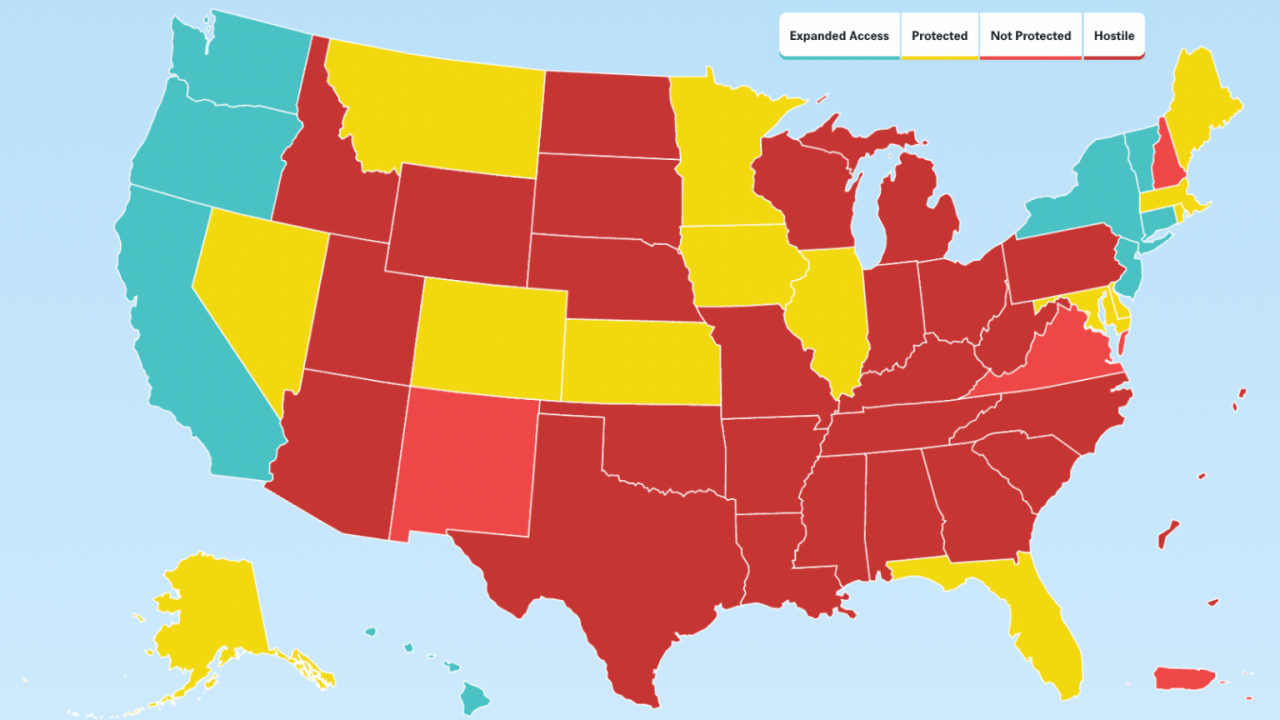
The emergence of abortion safe havens is a direct consequence of the evolving legal and political landscape surrounding abortion rights in the United States. This dynamic situation has created a stark divide between states, with profound implications for healthcare access, economic development, and the future of reproductive rights in America.
The debate surrounding abortion access is likely to remain a highly charged and controversial issue for years to come, shaping the political and social fabric of the nation.



